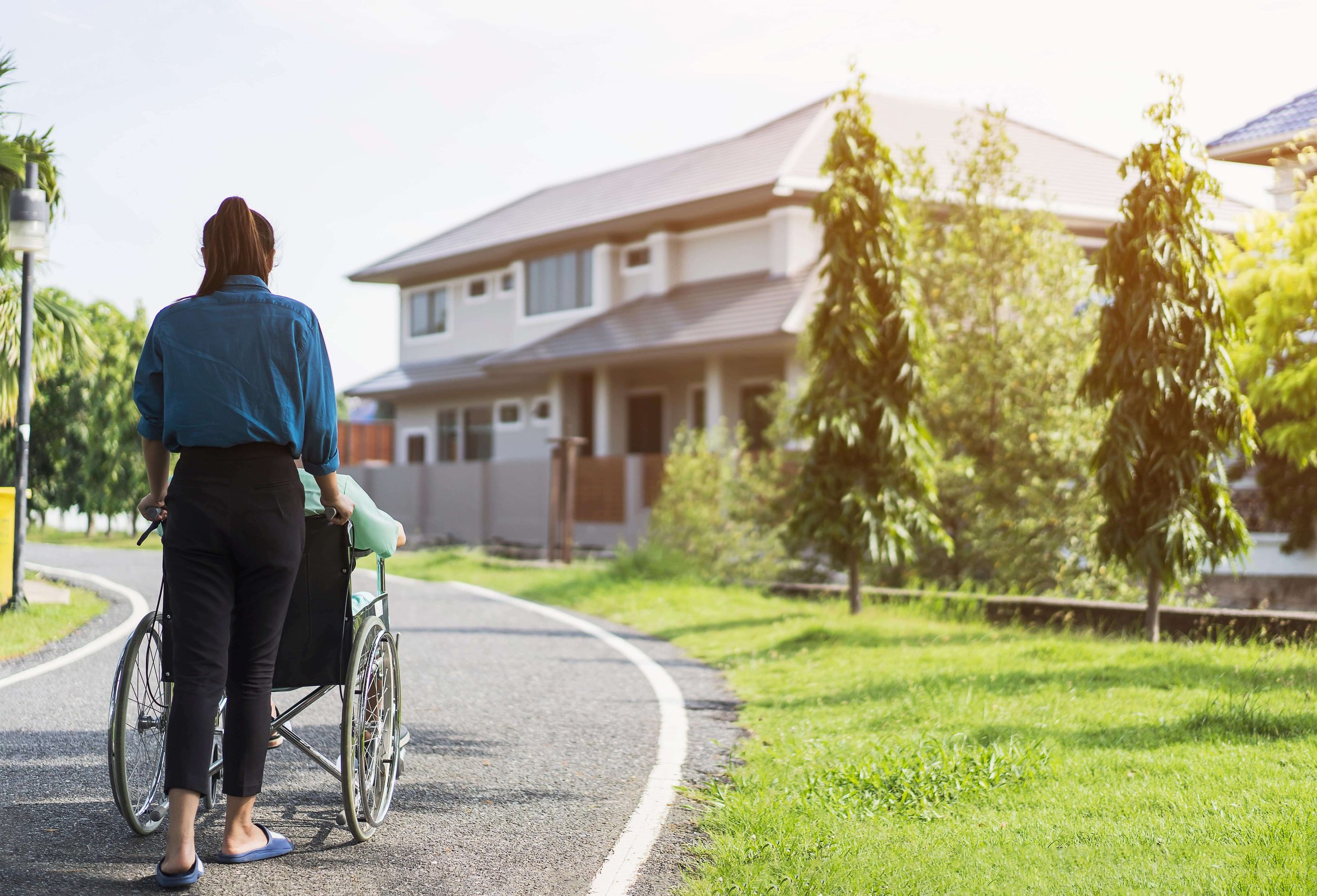8 Types of Abuse in Nursing Homes
Nursing home abuse is a serious issue that affects millions of elderly people every year. According to the National Council on Aging, approximately 1 in 10 Americans aged 60 or older have experienced some form of elder abuse. Unfortunately, nursing home abuse is a growing problem that can have devastating consequences for seniors and their families. It is important for everyone to be aware of the different types of nursing home abuse so that they can recognize the signs and take action to prevent it.
This blog will explore the various forms of nursing home abuse and provide tips for identifying and reporting abuse. Whether you have a loved one in a nursing home or you are simply interested in learning more about this important issue, we encourage you to read on and educate yourself about nursing home abuse.
Definition of Elder Abuse
Elder abuse is a term used to describe any intentional harm, neglect, or mistreatment of a person aged 60 or above. It can take many forms, including physical, emotional, financial, and sexual abuse, as well as abandonment and neglect.
Elder abuse can occur anywhere, including in nursing homes, assisted living facilities, or at home. The abuse may be committed by a family member, caregiver, or someone in a position of trust.
It is a serious problem that can have devastating physical, emotional, and financial consequences for the elderly and their families. You should be able to recognize the signs of elder abuse so you can take action to prevent it.
1. Physical Abuse
Physical abuse is one of the most common forms of elder abuse in nursing homes. It involves any physical force that causes harm or pain to a senior citizen.
Examples of physical abuse can range from slapping or hitting to pushing and shoving, to restraining an individual against their will. In some cases, physical abuse may even be inflicted by staff members who are supposed to be providing care. It is important that any suspected cases of physical abuse in nursing homes are reported immediately so that appropriate action can be taken and the victim can receive proper treatment.
If you suspect someone you know is being physically abused, it is important to speak up and take action.
2. Emotional Abuse
Emotional abuse in nursing homes is a serious problem and can have long-lasting psychological effects on the elderly. It can involve verbal insults, belittling language, or even withholding affection or communication. In some cases, it also includes intimidation, humiliation, and manipulation. Emotional abuse can be difficult to detect due to its subtle nature, which is why family members should be vigilant in monitoring their loved one’s well-being.
If emotional abuse is suspected, it is important to take immediate action by speaking to the nursing home staff about the issue and alerting relevant authorities if necessary. If you notice that your loved one has become withdrawn or depressed over time, it may be wise to arrange for an independent medical evaluation. In addition, there are support groups and counseling services available for elder abuse victims of all kinds - including those who have experienced emotional abuse.
By bringing attention to this issue and providing proper treatment for victims, we can help ensure that seniors are safe from any form of mistreatment.
3. Psychological Abuse
Psychological abuse in nursing homes is a serious problem that can have devastating consequences for the mental and emotional well-being of elderly residents.
This type of abuse can take many forms, including verbal threats, humiliation, isolation, and manipulation. It can be perpetrated by caregivers, staff members, or other residents, and can be difficult to detect, as it often happens behind closed doors.
Prevention and treatment options for psychological abuse in nursing homes include implementing training programs for staff on recognizing and reporting abuse, increasing oversight and accountability, and creating a culture of respect and dignity for residents.
Treatment options may include therapy, counseling, and other supportive interventions aimed at helping residents cope with the effects of abuse and regain their sense of self-worth and agency. It is important to prioritize the prevention and treatment of psychological abuse in nursing homes to ensure that all residents receive the care and support they deserve.
4. Sexual Abuse
Sexual abuse in nursing homes is an alarming issue that needs to be addressed with urgency. It is defined as any type of sexual contact or behavior that occurs without the consent of the individual involved.
This can include unwanted touching, fondling, rape, molestation, and inappropriate comments or gestures. Victims of this type of abuse often suffer from physical pain and emotional distress which can lead to long-term psychological trauma.
To protect the elderly from this kind of mistreatment, it is important for staff members to report any suspicious activity immediately and for regular visits from family members to ensure that their loved ones are safe. In addition, resources such as counseling services and support groups should be made available for victims of sexual abuse in nursing homes so they can receive the help they need to heal.
5. Financial Abuse
Financial abuse is a form of elder abuse that involves the misuse of an elderly person's finances for another person's gain. It can include activities such as taking money without permission, forging signatures, or manipulating financial documents. Financial abuse in nursing homes is especially concerning, as elderly residents may not have the capacity to detect or report this type of exploitation.
Those who are at risk of financial abuse are often the most vulnerable in society; they may be physically or mentally impaired, living alone, or estranged from family and friends. To help protect elderly individuals from financial abuse in nursing homes, it is important for facilities to have clear policies in place that outline expectations for staff behavior and establish procedures for reporting suspicious activity. In addition, families should remain vigilant and stay connected with their loved ones to ensure their welfare.
Finally, those who suspect that a loved one is being financially abused should contact Adult Protective Services immediately. By taking these steps we can help ensure that all elderly individuals receive the care and protection they deserve.
6. Abandonment
Abandonment is a form of abuse in nursing homes that has devastating effects on elderly residents. It occurs when caregivers willfully neglect or refuse to provide needed care, leading to physical and emotional harm. This can include failing to provide food or water, leaving the resident alone for extended periods of time, or ignoring medical needs. A primary example of this would be the development of bed sores. Unfortunately, abandonment is not always easy to recognize as it may not be obvious at first glance.
The best way to prevent this type of abuse is for families and facilities to maintain open communication with each other and regularly check in on residents. Additionally, having clear policies in place regarding reporting and responding to reports of abandonment can help ensure that victims receive the support they need.
Ultimately, preventing abandonment requires a collective effort from all parties involved in order to protect our elderly population from such harm.
7. Nursing Home Neglect
Nursing home neglect is a serious issue that affects the elderly population and can lead to serious physical, mental, and emotional harm. Neglect can take many forms, ranging from failure to provide basic necessities like food or shelter, to failing to give adequate medical care. Unfortunately, this type of mistreatment often goes unreported as victims may be too scared or ashamed to speak up.
To combat this issue, it's important for families and close friends of those living in nursing homes to regularly check in on them and ensure that their needs are being met. Furthermore, facilities should have clear policies in place regarding responding to reports of neglect and must take swift action when necessary.
Finally, it's essential that all parties involved (families, staff members, and administrators) remain vigilant in order to protect our elderly population from neglect.
8. Self-Neglect
Self-neglect is a type of abuse that occurs when an elderly person fails to provide for their own basic needs. This can include not getting enough food or water, not taking medications correctly, or failing to bathe and change clothes regularly. It’s important to note that this is different from voluntary decisions such as refusing medical treatment or choosing to live in poor conditions. Self-neglect is primarily caused by the elderly person's inability to recognize their own needs, due to mental health issues, dementia, or physical impairments.
In order to prevent self-neglect in nursing homes, staff members should be trained in recognizing signs of distress and providing appropriate interventions. Additionally, it’s important for family members and friends of those living in a facility to visit often and check in on their loved one's well-being. Furthermore, facilities should ensure that all staff members are properly trained in recognizing and reporting signs of abuse or neglect.
Finally, if any type of self-neglect is suspected it’s essential that legal action may need to be taken depending on the severity of the case in order to bring justice for those affected by this type of mistreatment.
Reporting Elder Abuse to Adult Protective Services
Reporting elder abuse to Adult Protective Services (APS) is an important step in protecting vulnerable adults from mistreatment. If you suspect that a person 60 years or older is being abused, neglected, or exploited in any way, contact APS as soon as possible. When making a report, provide as much information about the situation as possible, such as the identity of the alleged abuser, the type of abuse being experienced, and any potential witnesses. It’s also important to inform APS if there are any safety concerns for the victim.
Once APS receives your report, they will investigate the case and determine what action needs to be taken. Depending on their findings, they may obtain protective services for the victim or pursue criminal charges against the abuser. By reporting elder abuse to APS promptly, we can help ensure that individuals receive the care and protection they need.
Contact An Experienced Elder Abuse Lawyer Today
Nursing home abuse is a widespread problem that affects millions of elderly residents every year. Unfortunately, many of these cases go unreported, leaving victims without the help and support they need. That is why it is important to be aware of the different types of nursing home abuse and to take action if you suspect that a loved one is being mistreated.
If you suspect that a loved one has been a victim of nursing home abuse, it is important to take action right away.
At Peck Law Corp, we understand the devastating impact that nursing home abuse can have on elderly residents and their families. That is why we are committed to helping victims of nursing home abuse seek justice and hold those responsible accountable for their actions. If you need an experienced elder abuse lawyer to handle your nursing home abuse case, contact us today to schedule a free consultation.





